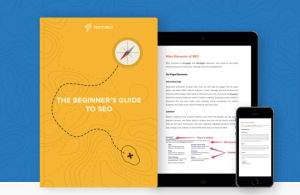
Social media has this intoxicating way of luring us: We see a cute cat-falling-off-the-countertop video and we are compelled to add our thoughts; A friend shares the news of his new job and we must say how proud we are of his success; A company professes a high customer satisfaction rating and we beg to differ…. So we type away.
Add a sense of anonymity we often feel when sending thoughts, beliefs, ideas, and frustrations into cyber space, and damage to our reputation is inevitable. Hopefully, the mistakes and missteps we take are small and unnoticed by most. Recently, however, we’ve seen comments made online about the President’s daughters’ demeanor at a media event are leading to a Hill staffer’s resignation, a PR professional’s off-handed comments while en route to vacation caused her firing, and the list of people fired or arrested for inappropriate photos posted to Facebook is a mile long.
Information shared online is permanent and public. There is no such thing as a “private message” when screen shots can capture and share our communications. Instead of leaving your online activities to chance, consider the impression you are making with people who know you and want to (or need to) know you, and control your behavior.
You can share your wit and insights and still keep your reputation (and career) in tact. Instead of typing your thoughts, commentary, and opinions freely, ask yourself these 5 critical questions before you hit “enter” on the keyboard:
- Does this represent me in a positive light?
While it is possible to be a different person online than in the flesh, it is not advisable. The online space demands genuineness. If people believe you to be one way online but when they meet you, you are different, they are disappointed and can’t trust you. Instead of trying to be someone you’re not or creating an alter ego online, focus on being consistent with the personal brand (reputation) you want for yourself. Working your personal brand strategy gives you the tools, control, and metrics by which to ensure consistent results. - Who am I targeting with this post?
Strategic positioning and reputation management dictates we have target audiences in mind for how/when/where we show up. The online community is no exception. For example, If your goal is to build credibility and top-of-mind awareness with clients and prospects, you’ll focus on sections of LinkedIn where they participate. If you seek to be seen as relatable and sociable to your staff, you might choose Facebook to show your human side. As you post, comment, share, or tag (images), keep in mind who will see the post. Write in a language that is appropriate for the platform and the audience. - Could someone be offended?
Most online mistakes and missteps occur because something we think is hysterical and MUST be shared, is offensive to someone we care about. While it’s true that you can’t please everyone… all the time, you can be careful about offending or upsetting audiences who you care about. Consider whether that joke, image, comment, or link would cause someone distress. Perhaps it crosses a line that you’re okay with but someone close to you (a client, friend, or family member) struggles with. For instance, I have branding clients who are leaders in the treatment of addiction. They are international experts and pioneers in helping individuals who struggle with addiction. I would never post a graphic depicting drunken teenagers because 1. I am not a fan of such “art” and 2. It would likely upset my clients, and they mean more to me than any fleeting humor of a graphic. - Am I sharing confidential information?
Before you congratulate a colleague on her pregnancy, share the great news of a new business account, or share a photo from a recent warehouse tour, be sure the information is already public. In the haste and excitement to be the online town crier of good news, you could inadvertedly spill the beans on confidential information. Intention aside, once the information is public, it could cause harm for those involved. The same question applies to photo sharing – before you post that picture of the fun you had at a recent party, be sure everyone in the image is comfortable being tagged. Relationships can be hurt by innocent tagging. - Am I helping someone with this message or image?
Ask yourself about your intent. Are you intending to help someone by sharing a message or image? Or, is your goal really to inflict pain or hurt? Social media is too broad and public to use as a platform for lashing out. In the heat of the moment, one image share or blog post comment can crush someone’s dreams or likelihood of landing a job. Consider the impact of your message. If you seek to help someone or some community with your post, perhaps engage them ahead of time. Celebrating their success, sharing in their good fortune, and spreading the word about their work are all appreciated! This is where the social benefit of the online world is at its best!
Posts online are 100% public and should be considered permanent. No matter how “good” your privacy settings, anyone can take a screenshot of a Snap Chat or instant message conversation and emails can be forwarded and shared. Before you post online, consider the intention and the impact, and always be mindful of how you want to be perceived.
Digital & Social Articles on Business 2 Community
(283)
Report Post




